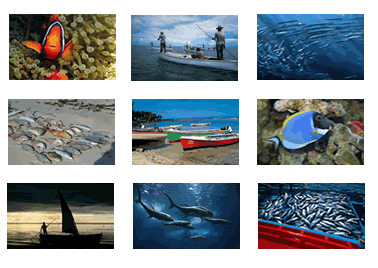
The fisheries sector represents an important economic sector of Mauritius; it generates employment, is a source of foreign income and ensures food security. Moreover, the fisheries sector (mainly seafood) contributes to about 1.4 % of our GDP and employs some 22000 people, working directly and indirectly, with the majority operating in the fish processing sector. In 2024, local fish production was 38,445 tonnes and total export of fish and fish products generated a revenue of about Rs. 17 billion, contributing to about 20 % of our national exports. Furthermore, the fishery sector makes a vital contribution in the life of coastal communities by supporting livelihoods of coastal communities, tourism, and ensuring supply of fresh fish on the local market. Currently the fisheries sector is the mainstay of our Blue Economy.
The main types of fisheries practiced are namely: Artisanal fishery, Banks and chilled fish fishery, Tuna fishery, Deep-sea demersal fishery, FAD fishery and Aquaculture.
Fisheries Division of the Ministry of Agro Industry,Food Security,Blue Economy and Fisheries (Blue Economy and Fisheries Division)
Vision
To be an economic pillar with due regard to sustainability of aquatic resources and social development for the benefit of all stakeholders.
Mission
To provide an enabling environment for the promotion of sustainable development of the fisheries sector and to ensure continued economic growth, social development within the framework of good governance.
Objectives
- undertake fisheries and aquaculture research and development and manage resources for sustainable development and the protection and conservation of biodiversity;
- consolidate existing knowledge and promote new ideas in fisheries development and management;
- promote the development of the Seafood Hub with the collaboration of all stakeholders;
- promote and regulate the optimal long-term sustainable utilisation of living marine resources;
- foster the interest of Mauritius within the international fisheries community, including encouraging the international trade of fish commodities within the framework of international laws and conventions;
- build capacity, fisheries capability and skills;
- provide professional, responsive and customer friendly services;
- disseminate information on fisheries;
- have a national fisheries policy responsive to the aspirations of all stakeholders; and
- promote the social welfare status of fishermen.

